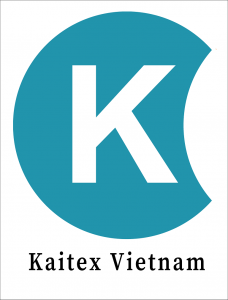The global workwear market is expected to reach $42.1 billion by 2026, presenting companies with an excellent opportunity to source from Vietnam, one of the world’s leading garment exporters. Known for its skilled craftsmanship and competitive prices, Vietnam is quickly becoming a go-to destination for quality workwear supplies. This article explores the strengths of Vietnam’s workwear manufacturing. Kaitex proudly represents Vietnam’s dedication to high-quality production and reliable service.
The landscape of workwear manufacturing in Vietnam
Vietnam has established itself as a leading hub for protective workwear suppliers, catering to renowned global brands. Manufacturers produce a wide range of safety gear, including high-visibility jackets, flame-resistant overalls, industrial gloves, and safety helmets. With the ability to customize designs and specifications, Vietnamese manufacturers offer ODM/OEM services based on clear client requirements.

Vietnam excels in durable materials, quality workwear, and government support
Additionally, these workwear suppliers excel in utilizing advanced materials like Kevlar, Nomex, and high-strength polyester. These highly durable fabrics are resistant to heat and abrasions and offer excellent moisture management and breathability. This combination of superior materials and skilled manufacturing makes Vietnam a top choice for high-quality protective workwear.
Vietnam’s government actively supports the textile and garment industry, positioning the country as an ideal choice for businesses looking for reliable and high-quality production. With the growing demand for workwear, sourcing from Vietnam provides a strategic opportunity to meet the rising needs for safety and durability across various industries.
Advantages of sourcing workwear from Vietnam
Vietnam offers high-quality workwear at affordable prices, making it a great choice for businesses that need reliable and durable products.
Commitment to fair labor standards
Vietnam has significantly improved its labor practices, prioritizing fair wages, safe working conditions, and employee rights. By adhering to internationally recognized standards like Fair Trade and the Global Organic Textile Standard (GOTS), the country shows its commitment to ethical and respectful work environments. This approach not only assures businesses of quality products but also allows them to contribute to positive social impact through responsible sourcing.
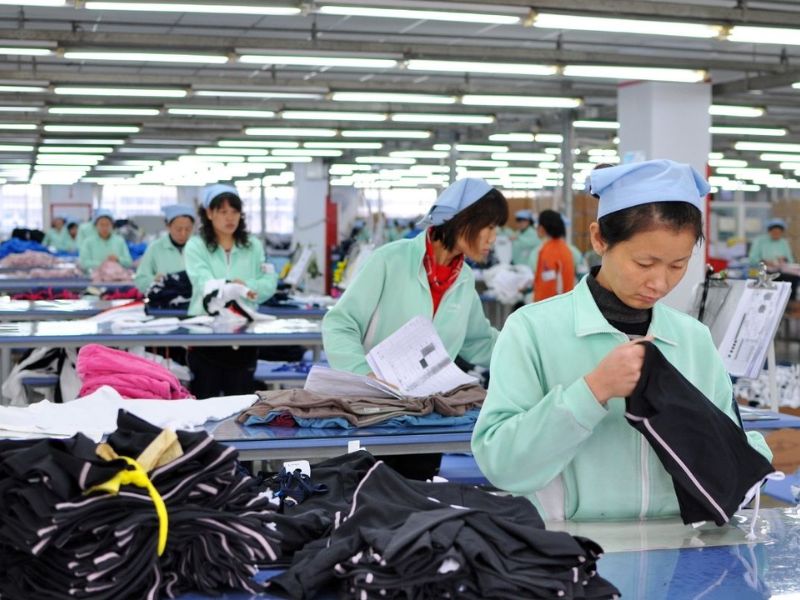
Vietnam prioritizes fair wages and safety, ensuring ethical labor practices
Sourcing of eco-friendly materials
Vietnam’s garment industry is gaining recognition for its sustainable material sourcing practices. Workwear suppliers are embracing eco-friendly fabrics like organic cotton, recycled polyester, and Tencel, which help reduce the industry’s environmental footprint. Certifications such as OEKO-TEX assure that the textiles used are free from harmful chemicals, reinforcing Vietnam’s reputation for producing both sustainable and stylish workwear options.
Environmentally sustainable production methods
Vietnamese workwear suppliers are also advancing toward greener production processes. By employing energy-efficient machinery, reusing water, and reducing waste, these companies are committed to lowering their environmental impact. With certifications like ISO 14001 and LEED (Leadership in Energy and Environmental Design), Vietnamese factories demonstrate their dedication to eco-friendly practices, making them a reliable choice for businesses looking to source sustainably produced workwear.
Competitive pricing without compromising quality
Vietnam’s textile industry excels in balancing affordability with quality, driven by economies of scale. Thanks to a robust manufacturing system and a sizable workforce, Vietnamese workwear suppliers can produce large quantities of garments at lower costs compared to other countries, without sacrificing product standards. Reports from 2021 indicate that sourcing apparel from Vietnam is more cost-effective than the Southeast Asia average, thanks to the country’s competitive labor costs and relatively low minimum wage rates.
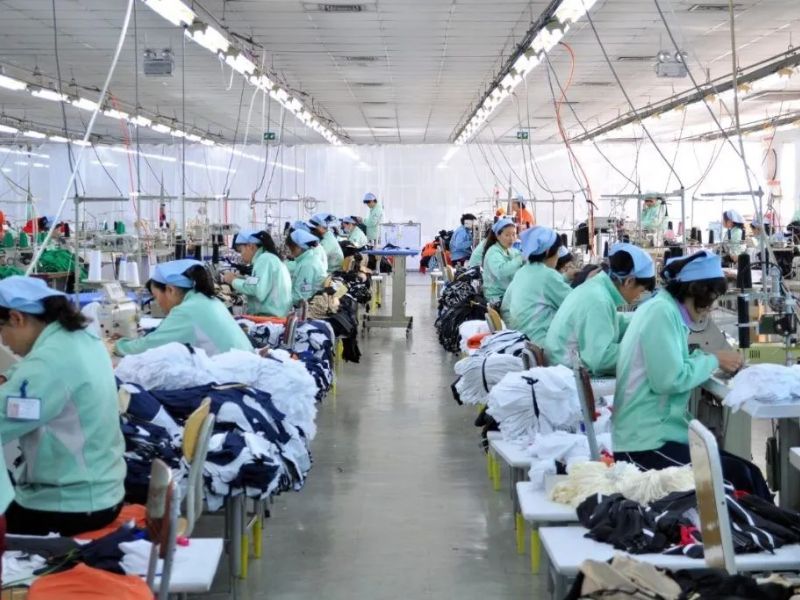
Vietnam excels in quality workwear, supported by free trade agreements
Moreover, the implementation of recent free trade agreements allows businesses to capitalize on reduced tariffs when exporting to key markets like the EU. This advantage further enhances Vietnam’s appeal as a sourcing destination.
In terms of quality, Vietnamese clothing ranks among the top 10% globally, supported by adherence to international standards like ISO 9001 for quality management. Vietnamese workwear suppliers employ rigorous quality checks such as AQL (Acceptable Quality Limit) inspections to ensure that each product consistently meets high benchmarks. This combination of affordability and strict quality control solidifies Vietnam’s position as a leading choice for premium apparel production at competitive prices.
Customization and flexibility
Vietnamese workwear suppliers often offer customization options that allow businesses to tailor uniforms to their specific requirements. This includes variations in design, fabric, and functionality, catering to diverse industry needs. The ability to handle both low and large minimum order quantities (MOQs) makes Vietnamese suppliers particularly appealing.
A business-friendly environment with tax benefits and free trade opportunities
Vietnam offers a highly favorable business landscape, underpinned by a wide range of Free Trade Agreements (FTAs) that connect the country with key markets around the world. These agreements encompass all ASEAN member nations, as well as significant economies like South Korea and Australia.
In recent years, Vietnam has signed pivotal trade pacts, including the EU-Vietnam Free Trade Agreement (EVFTA), the Comprehensive and Progressive Agreement for Trans-Pacific Partnership (CPTPP), and the UK-Vietnam Free Trade Agreement (UKFTA). These accords have unlocked substantial growth opportunities for Vietnamese garment manufacturers and foreign investors.
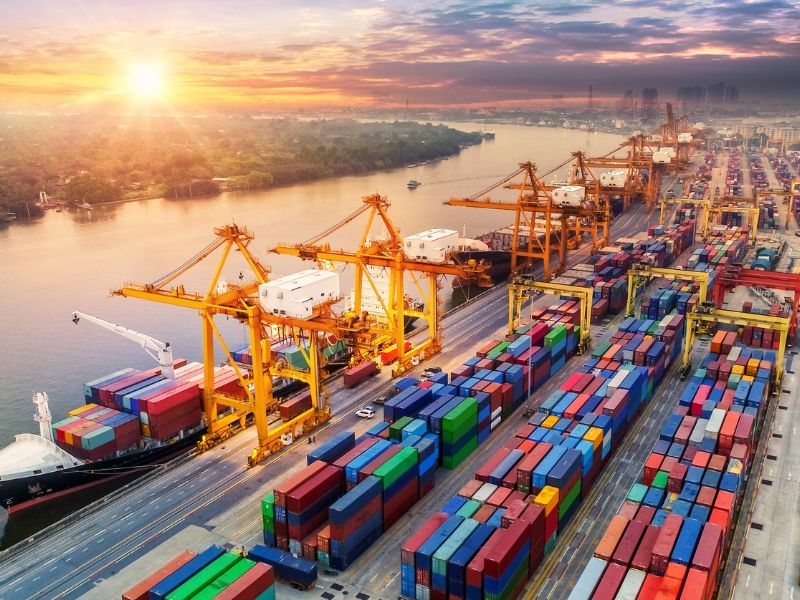
FTAs lower tariffs, boosting Vietnamese apparel exports and competitiveness
Thanks to these FTAs, businesses exporting Vietnamese apparel to major markets such as the European Union and the United States can benefit from significantly reduced tariff rates. This enhanced trade accessibility not only improves the competitiveness of Vietnamese exports but also reinforces the country’s position as an attractive destination for apparel production and investment.
How to choose the right workwear supplier in Vietnam
Choosing the right workwear supplier in Vietnam requires a careful approach to ensure you partner with a reliable and quality-focused manufacturer. Here are some essential steps to guide your decision:
Research supplier experience and reputation
As a customer, you should start by examining the supplier’s experience in the industry. Look for manufacturers with a proven track record in producing workwear and review their portfolio. Check if they have previously collaborated with reputable brands, and read testimonials from past clients to assess their reliability.
Assess certifications and quality standards
Customers should ensure that their chosen supplier meets international quality and safety standards. They can look for certifications like ISO 9001, which indicates strong quality management, and OEKO-TEX, which ensures fabric safety. Additionally, customers should verify that the supplier follows ethical labor practices and environmental guidelines.
Request samples for quality inspection
Customers should request samples from the supplier to inspect the quality of the workwear. This allows them to evaluate the materials, stitching, and overall construction before making a larger commitment. It’s important to specify the desired products and the quantity of samples needed. This process ensures that the chosen supplier meets quality standards and aligns with the customer’s expectations.
If you’re not fully confident, consider visiting their factory to see the production facilities firsthand.
Analyze pricing and production capacity
While affordability is important, balancing cost with quality is crucial. Compare quotes and production capabilities among different suppliers to find one that fits your budget and can handle your order volume. Ensure they can meet deadlines consistently.
Review logistics and delivery efficiency
Choose a supplier with a solid logistics network that can handle shipping and delivery efficiently. Delays in supply chains can disrupt business operations, so it’s vital to confirm that the supplier can ensure timely deliveries and provide tracking updates for your orders.
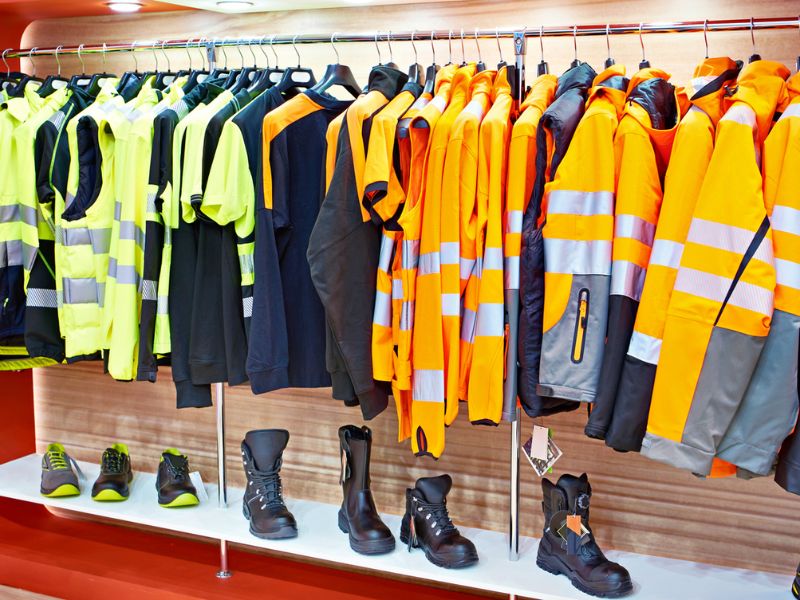
Evaluate suppliers’ logistics to ensure timely deliveries and tracking
To find “workwear supplies near me”, it’s actually quite simple. If you’re living and working in Vietnam, just searching this phrase will yield numerous suppliers. However, don’t forget to consider various aspects, such as the factors Kaitex has outlined above. By taking a comprehensive approach, you can ensure you select the best options that meet your specific needs.Renowned for their quality and commitment to ethical practices, workwear suppliers in the country offer businesses the chance to fulfill their requirements while making a positive social impact. By choosing the right partners, companies can ensure they have access to durable and stylish workwear that meets industry standards. With Kaitex as your workwear supplier, you can confidently meet your workforce’s needs while prioritizing quality and ethical production.
